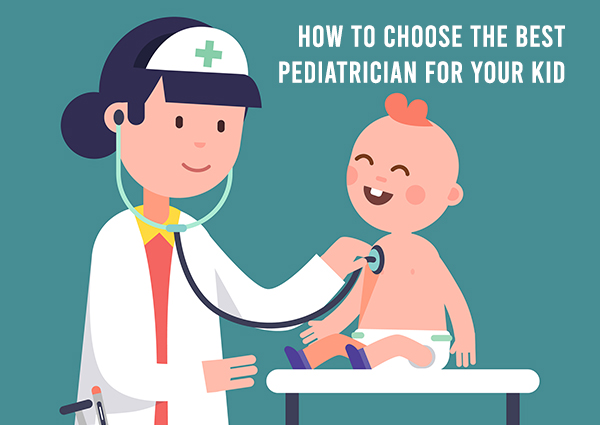
by admdinesh1 | Nov 15, 2019 | blog
How To Choose The Best Pediatrician For Your Kid In the following we’ll be discussing a vital topic that’s “How to Choose the Best Pediatrician for Your Child” and will discuss it in detail within the article. Parents seem to go to a lot of different extremes when choosing a pediatrician. Some do almost nothing and simply choose the pediatrician on call in the hospital when their baby is born or pick a doctor randomly from a list in the phone book or their insurance directory. Others do detailed research and conduct an interview asking their potential new pediatrician everything from where they went to medical school to what their scores were on their medical boards. When choosing a pediatrician, you should likely avoid these extremes, make sure you like your new doctor, and see if you agree on important parenting topics, such as breastfeeding, discipline, and not overusing antibiotics, etc. The Importance Of Choosing A Pediatrician Choosing the right pediatrician is more important than most parents think. While you can simply change doctors if you don’t like the first pediatrician you see, if your newborn or older child is truly sick, the first doctor you see could be making life-changing choices about your kid. Or they could miss a potentially life-threatening problem. So even if you have a healthy newborn or an older child with a simple cold or ear infection, you should put some thought into who cares for him, just in case his medical problems are a little more serious than you think.Regarding this,child specialist in west delhi are providing a best services. Pediatrician Recommendations A...
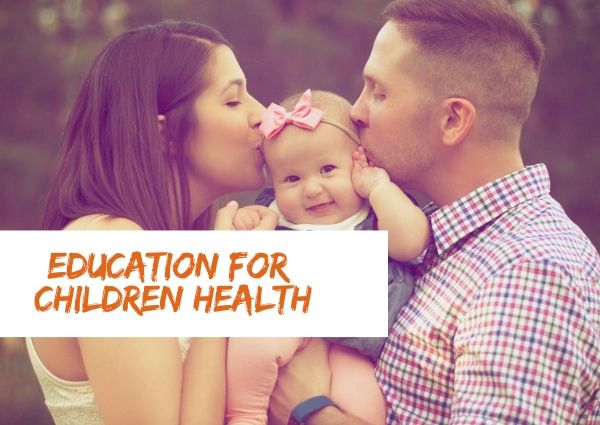
by admdinesh1 | Nov 7, 2019 | blog
Education For Children Health In the following, we will be discussing about a vital topic, which is “Education for children Health“. Let’s discuss: Health education builds students’ knowledge, skills, and positive attitudes regarding health. Health education teaches about physical, mental, emotional and social health. It actually motivates students to improve as well as prevent disease, maintain their health as well as reduce risky behaviors. Health education curricula and instruction help students learn skills they’ll use to make healthy decisions throughout their lifetime. Effective curricula lead to positive changes in behavior that lower student risks around: Alcohol Tobacco, and other drugs Injury prevention Mental and emotional health Nutrition Physical Activity Prevention of diseases and Sexuality and family life Health education promotes learning in other subjects! One of the researches or studies showed that reading and mathematics scores of 3rd and 4th-grade students who received comprehensive health education were considerably or comparably higher than people who didn’t. In general, healthy students learn better. Numerous studies have shown that healthier students tend to do better in class. They even have higher attendance, have better grades, as well as perform better on tests compared to others. Get in touch with our team for the Child Specialist in West Delhi Some of The Most Effective Practices For Schools Around Health education Best practices in Health education offer skills-focused instruction that follows a comprehensive, sequential, culturally appropriate K-12 Health education curriculum that addresses all of the New Hampshire Health Education Minimum Standards. Address the following in Health education instruction: Assessing personal vulnerability to health risk-taking;Accurately assessing health risk-taking of peers;Analyzing the influence of family, peers,...
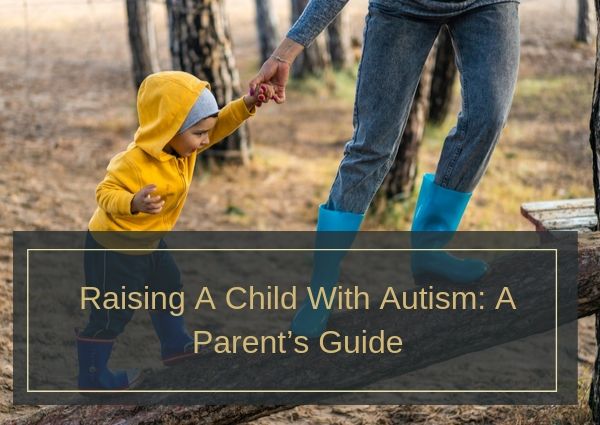
by admdinesh1 | Oct 28, 2019 | blog
Raising A Child With Autism: A Parent’s Guide In the following we will be discussing an important topic that is “Raising a Child with Autism: A parent’s guide” and will discuss it in detail within the article. There are several things parents will do to assist kids with Autism Spectrum Disorder (ASD) overcome their challenges. But it’s also vital to make certain you get the support you need. When you’re looking after a child with ASD (i.e. Autism Spectrum Disorder), taking care of yourself is not a luxury or an act of selfishness, it’s actually a necessity. Being emotionally strong allows you to be the most effective parent you’ll be to your kid in need. These parenting tips will facilitate by making life with an autistic kid easier. A Parent’s Guide If you’ve recently learned that your kid has or might have autism spectrum disorder, you’re probably wondering and worrying about what comes next. No parent is ever prepared to hear that a child is anything other than happy and healthy, and an ASD diagnosis can be particularly frightening. You may be unsure about how to best help your kid, or confused by conflicting treatment advice. Or you may have been told that ASD is an incurable, lifelong condition, leaving you concerned that nothing you do will make a difference. While it is true that ASD is not something a person simply “grows out of,” there are many treatments that can help children acquire new skills and overcome a wide variety of developmental challenges. From free government services to in-home behavioral therapy as well as school-based programs, assistance or...
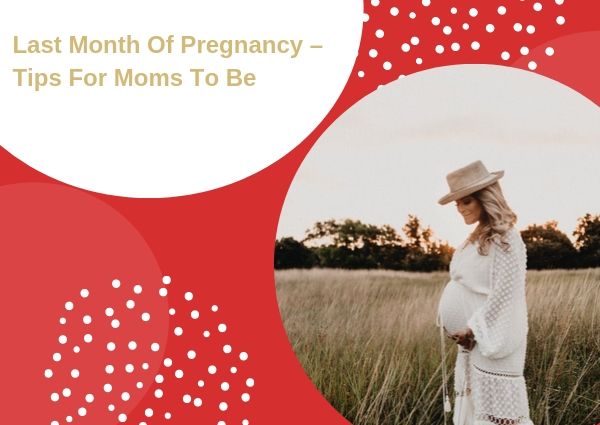
by admdinesh1 | Oct 14, 2019 | blog
Last Month Of Pregnancy – Tips For Moms To Be In the following, we will be discussing an important topic that is “Last Month of Pregnancy – Tips for Moms to be” and will discuss it in detail within the article. If you’re in your last month of pregnancy, then your baby could arrive at any time. Most women give birth between weeks thirty-eight and forty-two, but very few babies arrive exactly on their due date. Nine Months Pregnant: Common Symptoms In the final month of your pregnancy, a few of the normal as well as common pregnancy symptoms you might experience include: Frequent urinationMucus plug being expelledIncreased vaginal dischargeBackacheItchy skinPelvic pressure Some of these symptoms are common across the third trimester. Explore other third trimester symptoms & remedies to ensure the well-being of mother & baby in the last stretch of pregnancy 9 Months Pregnant: Baby Development & Body Changes Your Baby’s Development: At 9 months pregnant, your baby will drop lower into your pelvis as she gets ready to be born. She’ll gain weight until she’s born, mostly accumulating fat around the elbows, knees, and shoulders. By the 9th month of pregnancy, your baby should be positioned with her head down. If she’s in a breech position with her feet or bottoms down, your doctor may attempt to turn her around or you could be offered a cesarean birth. Changes to Your Body: At 9 months pregnant, you’ll be feeling big, tired, and impatient — you might even feel fidgety sitting or lying down because nothing feels comfortable. Some mums-to-be additionally experience a surge in energy, as...
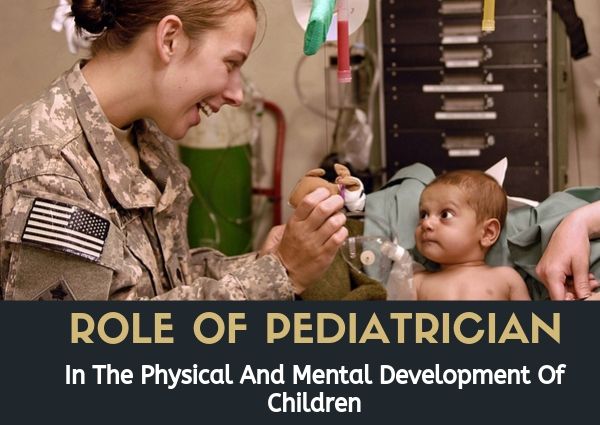
by admdinesh1 | Oct 7, 2019 | blog
Role Of Pediatricians In The Physical And Mental Development Of Children In the following, we will be discussing an important topic that is “Role of Pediatricians in the Physical and Mental” and will discuss it in detail within the article. Children ought to develop a range of skill sets to optimize their development and manage toxic stress. Research demonstrates that developmentally appropriate play with parents and peers is a singular opportunity to promote the social-emotional, cognitive, language, and self-regulation skills that build executive function and a prosocial brain. Furthermore, play supports the formation of the stable, safe as well as nurturing relationships with all caregivers that kids need to thrive. Play isn’t frivolous: it enhances brain structure and function as well as promotes executive function (i.e., the process of learning, rather than the content), which allows us to pursue goals and ignore distractions. When playing as well as stable, safe nurturing relationships are missing in a kid’s life, toxic stress can disrupt the development of executive function as well as the learning of prosocial behavior; in the presence of childhood adversity, play becomes even more important or necessary. The mutual joy and shared communication as well as attunement (i.e. harmonious serve as well as return interactions) that parents and kids will experience throughout play regulate the stress response of the body. This clinical report provides pediatric providers with the information they need to promote the benefits of play and to write a prescription for play at well visits to complement reach out and read. At a time when early childhood programs are pressured to add a lot of didactic...

by admdinesh1 | Sep 28, 2019 | blog
Teething In Babies In the following, we are going to be discussing a crucial topic that’s “Teething in babies” and will discuss it in detail within the article. The first tooth is a huge event in your baby’s young life, however, it can be uncomfortable. The more you know about teething, the better you can help your baby get through it. The pediatrician will monitor your baby’s teeth for decay and will decide if a referral to a dentist is required prior to age one. In lower-risk kids, the pediatrician can continue to screen teeth until age three. Signs of Teething Most babies begin to teethe between 4-7 months old. But some start much later. The symptoms aren’t identical for every baby, however, they may include: Swollen, tender gums Fussiness and crying A slightly/little raised temperature (which is less than 101 F) Gnawing or wanting to chew specifically on hard things Lots of drool Changes in eating or sleeping patterns Teething may be painful; however, it doesn’t typically make babies sick. Call your doctor if your baby has vomiting, diarrhea, a higher fever, rashes on the body, or cough as well as congestion. These aren’t normal signs of teething. Get in touch with our team for the best pediatrician in West Delhi Soothe a Teething Baby What works to soothe a friend’s baby may not work for yours. You may need to attempt different things to help your kid feel better. Often, something cold in your baby’s mouth helps. Try a cold pacifier, spoon, clean wet washcloth, or a solid (not liquid) refrigerated teething toy or ring. Some specialists...







